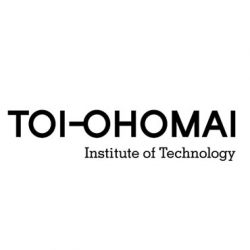
A Cross-disciplinary comparison of the approach to developing 'Work ready plus' graduates
Status
Completed: 20 July 2020
Project Details
A two-year action-research project examining the employability of graduates within five programmes of study, including the New Zealand Certificate in Construction Trade Skills (Level 3); the Diploma in Early Childhood Teaching (Level 5-6); the Bachelor of Creative Technologies (Level 5-7); the Graduate Diploma in Health studies (Level 7); and the Master in Management (Level 9).
Aims:
The primary aims of the project were to:
- examine the suitability of the Professional and Graduate Capability Framework (Scott, 2016) for each of the five sampled programmes incorporating and reconciling the perspectives of all key stakeholders (i.e, students, graduates, employers and Tertiary Education Organisation managers)
- develop an evidence-based, sustainable and transferable model of future employability enhancement for each of the five sampled programmes
- generate a comprehensive and research informed guideline on future employability enhancement in Tertiary Education Organisations that exemplifies and justifies how key commonalities and discrepancies between programmes and disciplines can be addressed.
Methodology:
Referring to a framework known as the 'Work Ready Plus' framework, the project used an action research methodology that explores the four stages of planning, acting, observing and reflecting.
Through interviews and observation, the project generated evidence-based best practices of employability enhancement for each of the five programmes.
It compared programmes, disciplines and sites, as well as identifying similarities and differences in the way each programme implements and evaluates their approach to employability enhancement.
Outcomes:
The following outcomes were sought from this project, with all resources to be made available for other New Zealand Tertiary Education Organisations.
- Modified and validated scales of professional capability.
- Survey data from large numbers of tertiary students from two cohorts of five programmes.
- Interview data from stakeholder groups (students, staff, graduates, employers and managers).
- Five fully developed ‘Work Ready Plus’ enhancement models tailored to the New Zealand tertiary education context comprised of:
(a) new graduate outcomes added to the existing graduate profile
(b) new learning outcomes added to one or more existing courses
(c) new topic and the related teaching/supporting strategies added to one or more existing courses
(d) a full resource kit housing all the necessary resources and instructions for the creation of the work ready plus learning environment. - One fully developed cross-disciplinary ‘Work Ready Plus’ handbook detailing all the theoretical principles and practical strategies for programmes in different disciplines and the differences and commonalities between disciplines.
Team

Dr Qilong Zhang
Project Co-Leader and Principal Investigator
Toi Ohomai Institute of Technology
Dr Heather Hamerton
Toi Ohomai Institute of Technology
Dr David Gough
Project Co-Leader
Toi Ohomai Institute of Technology
Jon Sadler
Project Manager
Toi Ohomai Institute of Technology
Tina Mischewski
Careers Guidance
Toi Ohomai Institute of Technology
Megan Ruha
Programme Investigator
Toi Ohomai Institute of Technology
Dr Aliyu Abdullahtef
Programme Investigator
Toi Ohomai Institute of Technology
Joanne Hayes
Programme Investigator
Toi Ohomai Institute of Technology
Debra Laraman
Programme Investigator
Toi Ohomai Institute of Technology
John Kelly
Programme Investigator
Toi Ohomai Institute of Technology
Joanne Donovan
Toi Ohomai Institute of Technology
Rawhia Te Hau-Grant
Toi Ohomai Institute of Technology
Malcolm Frost
Toi Ohomai Institute of Technology
Ruth Barnes
Action Research Coordinator
Toi Ohomai Institute of Technology
Dr Tepora Emery
Kaupapa Māori Advisor and Iwi Liaison
Toi Ohomai Institute of Technology
Roberta Skeoch
Toi Ohomai Institute of Technology
Karoline Setu-Galo
Pasifika Liaison
Toi Ohomai Institute of TechnologyStatus
Funding
$116,276.00 (excl GST)
Key Findings
Key Recommendations
This comprehensive report details the background and methodology of the project as well as the findings and impact.
- 20 July 2020